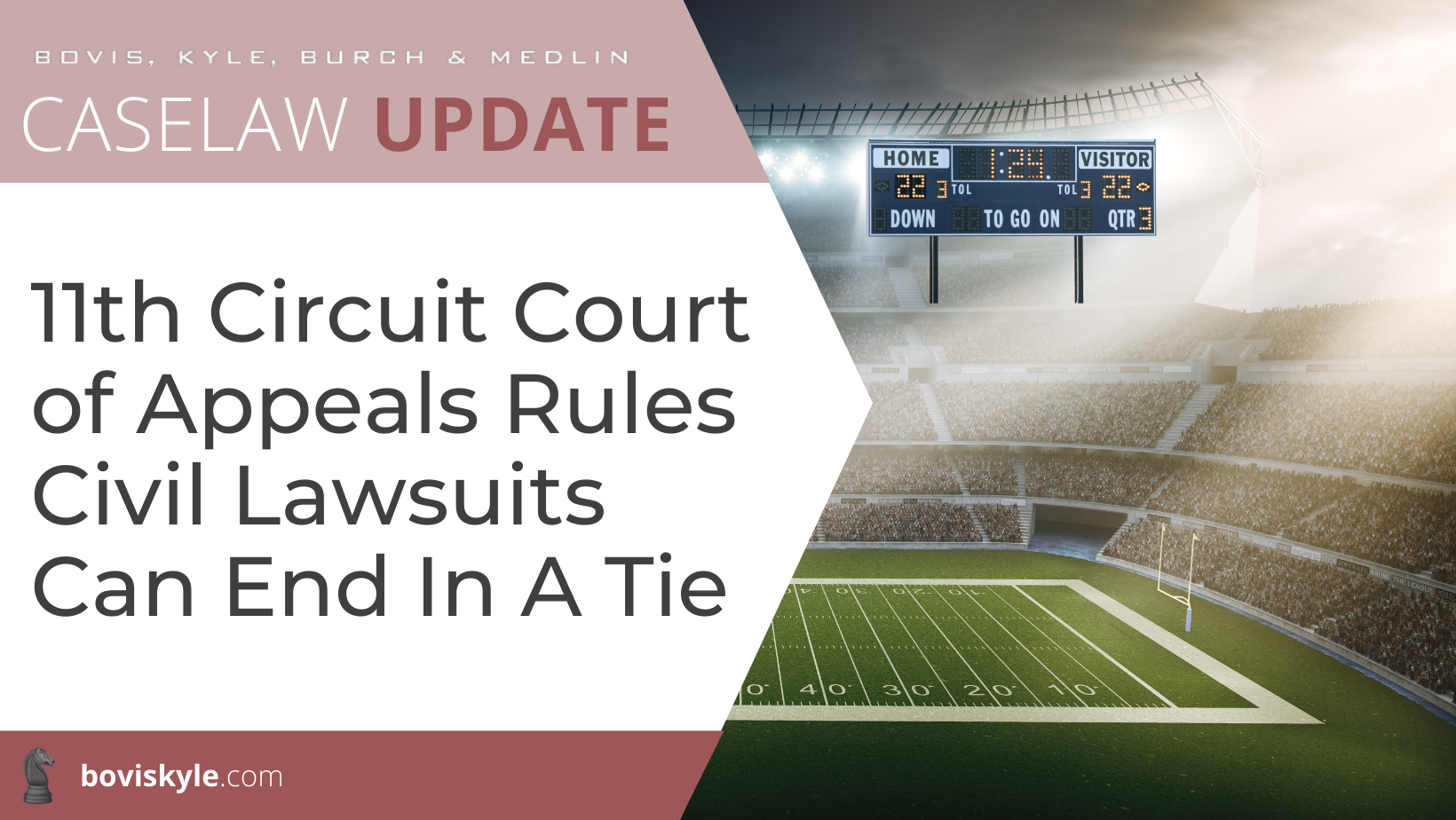ELEVENTH CIRCUIT RULED THERE ARE TIES IN CIVIL SUITS
By Greg Veal July 7, 2022 News/Events/Seminars
 A civil suit is like a regular-season NFL game, according to a panel of the 11th Circuit. That is, unlike playoff games, the end result can be a tie. Specifically, where neither party receives substantial relief and the court leaves them where it finds them, there is no “prevailing party.”
A civil suit is like a regular-season NFL game, according to a panel of the 11th Circuit. That is, unlike playoff games, the end result can be a tie. Specifically, where neither party receives substantial relief and the court leaves them where it finds them, there is no “prevailing party.”
In Royal Palm Properties, LLC v. Pink Palm Properties, LLC, No 21-10872 (July 7, 2022), the Court of Appeals held that a “split the baby” verdict resulted in no prevailing party under Federal Rule of Civil Procedure 54, which otherwise awards costs to the winner. The significance of this first-impression ruling is greater than just costs, though: many statutes and contracts provide for an award of attorney’s fees to the prevailing party. The court’s analysis and conclusion should apply any time the winning party is in issue. Note that the Federal Circuit has gone the other way and held that, in every case, one party must be deemed the prevailing party or, to continue the football metaphor, “punting is not an option.” Shum v. Intel Corp., 629 F.3d 1360, 1367 (Fed. Cir. 2010). The 11th Circuit now joins the 2nd, 5th, and 8th Circuits in holding that ties are possible.
When evaluating exposure for costs and fees, the potential for a dogfall must be considered. For sureties, who routinely deal with opponents stacking up multiple causes of action to complicate the case, prevailing in defense remains important. Tailoring the surety’s affirmative claims to receive at least some judicial relief also is a worthwhile consideration if “prevailing” carries valuable benefits, such as recovery of attorney’s fees.
